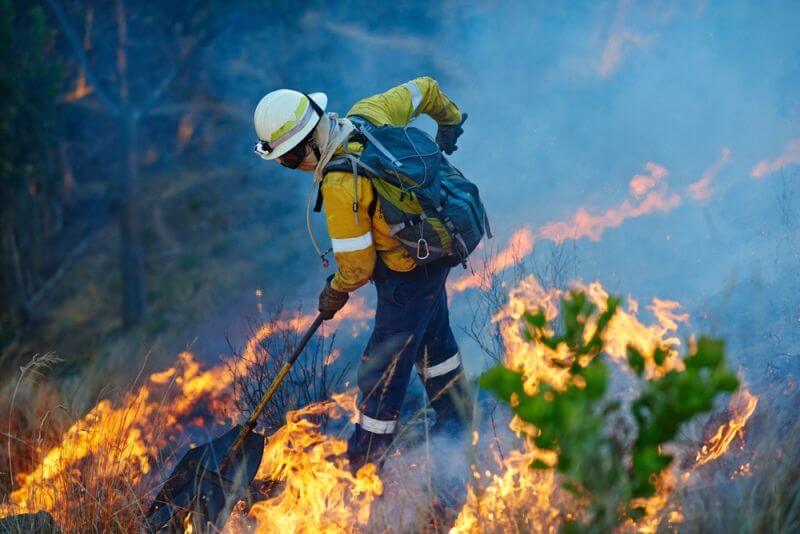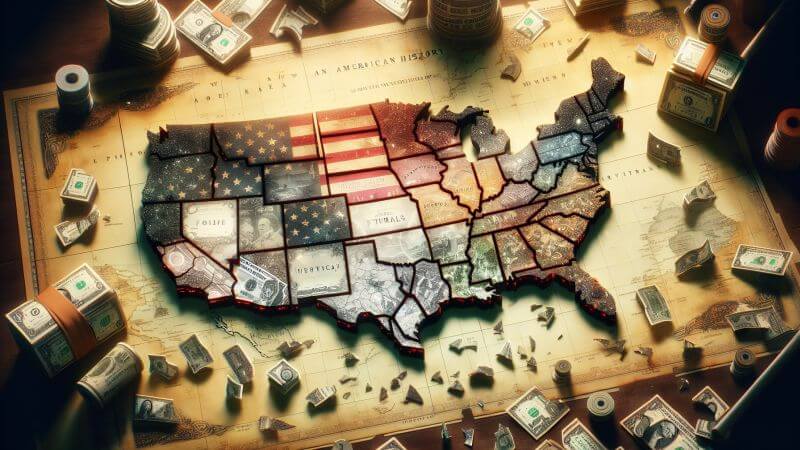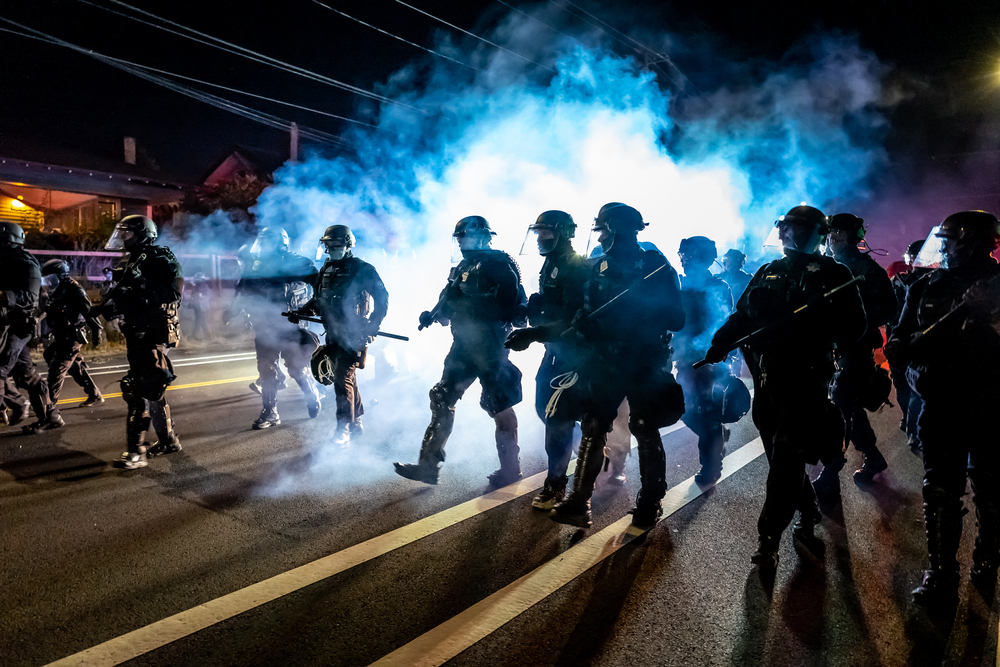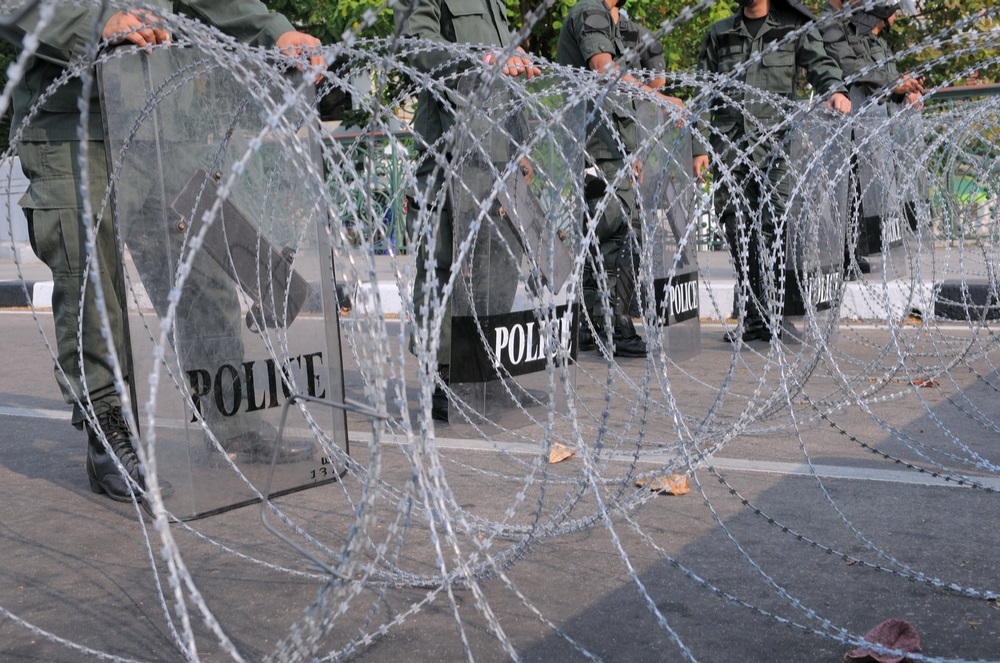When I think of my grandparents and reflect on those times, I realize that although their lives were challenging, they were less stressed and worried than my generation is today. They feared God and little else. They didn’t fret much about economic collapse, pandemics, or other concerns, and they lived relatively tranquil lives.
Things have changed drastically since then. As we’ve developed as a society and made technological advancements to improve our lives, we’ve also created a new set of problems. Now, more than ever, we face threats that were once just the stuff of movie scripts.
In my opinion, there are certain disasters we will likely experience in our lifetime, and this article is intended to open a discussion about them. After reading it, I invite you to add your comments and share your thoughts on what lies ahead.
Disasters we will probably live to see
Civil war
The likelihood of America facing a civil war in the next decade is a topic of significant debate among experts. While opinions vary, many agree that a traditional civil war—characterized by widespread, organized armed conflict between distinct factions—is highly probable. Concerns about political violence, social fragmentation, and unrest are more real than ever.
The U.S. is deeply polarized, with sharp divisions along political, cultural, and ideological lines. This polarization is often amplified by media, social media, and political leaders, contributing to an increasingly hostile climate.
There are also growing concerns about the erosion of democratic norms, such as the peaceful transfer of power, respect for the rule of law, and the acceptance of election results. Events like the January 6th, 2021, attack on the U.S. Capitol have heightened these fears.
Moreover, trust in key institutions like the government and media is declining. This mistrust makes people more susceptible to conspiracy theories and increases the willingness to engage in or tolerate political violence.
It’s also important to note that rising inequality is fueling resentment and radicalization, particularly among marginalized groups or those who feel left behind by economic changes. This has led to the growth of armed militia movements and extremist groups, some of which openly discuss preparing for civil conflict.
Global sea level rise
While a dramatic increase in sea levels over the next decade would have profound effects on the United States, particularly in coastal regions, scientists suggest that a more moderate rise is likely. Although sea levels are rising, experts assure us that a sudden, significant increase within a single decade is less probable. Current projections point to a gradual but accelerating rise over the coming years.
Some people might dismiss this as a non-issue because they don’t live near coastal areas and think they have nothing to worry about. However, this is a dangerous assumption. The effects of rising sea levels are widespread and will impact the country in significant ways.
Higher sea levels mean that even minor storms and high tides can cause significant flooding. Coastal cities are already experiencing more frequent flooding, which will only worsen in the future.
Low-lying areas such as Florida, Louisiana, and the Carolinas could face permanent inundation, leading to the displacement of communities and loss of property. This scenario carries a massive economic impact, with billions of dollars in coastal real estate at risk.
As flooding risks increase, insurance costs are likely to rise, and in some areas, flood insurance may become unavailable. This could affect property values and economic stability in coastal regions.
Even if some readers aren’t concerned about “beachfront properties,” the damage from rising sea levels extends to infrastructure like roads, bridges, water treatment plants, and other critical systems. Ports and coastal industries, such as fishing and tourism, which are vital to both local and national economies, are also under threat.
Another crucial, yet often overlooked, consequence of rising sea levels is human displacement. Entire communities may need to be relocated, and vulnerable populations, including low-income and minority groups, are likely to be the most affected. Such communities have fewer resources to adapt or relocate, exacerbating existing social inequities.
Global pandemic (a bigger one)
A pandemic caused by a highly virulent strain of avian influenza, often referred to as “bird flu” is anticipated by many experts as the next global pandemic, with fears that it could have catastrophic consequences, potentially surpassing the impact of the COVID-19 pandemic in both severity and scale. While predicting the likelihood of such an event is challenging, it is a topic that should not be ignored, especially given the virus’s potential to jump from animals to humans.
If such transmission occurs more frequently than the isolated cases currently reported in the media, the implications could be dire. We must first recognize that some strains of avian influenza, like H5N1 and H7N9, have alarmingly high mortality rates in humans, often exceeding 50% in the cases where the virus has infected people. If a strain were to mutate to become easily transmissible between humans while retaining its high lethality, the impact could be devastating on a global scale.
We have already seen how a pandemic with a rapid spread can overwhelm healthcare systems, as evidenced by the COVID-19 crisis. Now, consider the potential scenario of a pandemic that not only spreads rapidly but also carries a high mortality rate. Hospitals would face even more severe shortages of both medical equipment and personnel, exacerbating the strain on healthcare infrastructure.
The economic fallout from such a pandemic could also far exceed what was experienced during COVID-19. There would likely be widespread business closures, severe supply chain disruptions, and a collapse in consumer demand, with industries such as travel, hospitality, and retail being hit particularly hard. The knock-on effects would ripple through the global economy, causing long-lasting damage.
Given that avian flu would be at the heart of such a pandemic, we should also expect a mass culling of poultry to prevent the disease from spreading further. This would not only cause disruptions in the food supply, particularly in the availability of poultry products, but it would also lead to significant economic losses in the agriculture sector. Farmers, supply chain workers, and the broader food industry would all be deeply affected, contributing to a complex web of economic and social challenges.
While I do agree with most folks that the exact timing and likelihood of a severe avian influenza pandemic remain uncertain, the potential consequences are too significant to ignore. We must remain vigilant and prepared, learning from past experiences to better manage the threats posed by such infectious diseases.
Food shortages
While many believe that the U.S. is too wealthy to face food shortages, it’s important to recognize that the country is no longer as food-secure as it was decades ago. Several factors contribute to this growing vulnerability, and it’s crucial to understand the risks involved.
First and foremost, the increasing frequency and intensity of natural disasters like droughts, floods, and wildfires are directly impacting crop yields and livestock production. For instance, a prolonged drought in the Midwest can severely affect corn and soybean production, which are staples not only for human consumption but also for animal feed. The ripple effect of such a disruption can be felt throughout the food supply chain.
In regions like California, water scarcity is already a pressing issue. As water shortages become more common, the production of water-intensive crops like almonds, fruits, and vegetables will inevitably decline. This will have a significant impact on the availability and price of these essential food items.
Moreover, unsustainable farming practices, including the overuse of fertilizers and monocropping, are contributing to soil degradation. As the soil’s productivity diminishes over time, the likelihood of food shortages increases, making it more challenging to meet the demands of a growing population.
But the concerns don’t end there. The disruption of the food supply chain, something we all experienced during the COVID-19 pandemic, highlights the vulnerabilities within the system. Labor shortages in processing plants, transportation delays, and other logistical challenges can create bottlenecks that lead to shortages. Future pandemics or similar crises could exacerbate these issues even further.
The geopolitical climate also plays a significant role in food security. Increasing tariffs, trade wars, and export bans can all affect the availability and price of imported foods. The U.S. is a major importer of products like fruits, vegetables, and seafood, and any disruptions in trade can quickly lead to shortages.
Economic factors like recessions, inflation, or currency devaluation can also impact food prices and accessibility, particularly for lower-income households. In such scenarios, the demand for government assistance programs and food banks would likely surge, putting additional strain on these already stretched systems.
AI-generated disasters
AI-generated disasters, or those resulting from the misuse or malfunction of artificial intelligence systems, are becoming a growing concern as AI becomes more integrated into nearly every aspect of our lives. The potential for catastrophic outcomes, whether accidental or intentional, is increasing alongside this integration.
One of the most alarming developments is the use of AI in autonomous weapons and military applications. Nations worldwide are already experimenting with these technologies, as evidenced by the ongoing Russian-Ukraine conflict, where drones and unmanned land and sea vehicles are being deployed on a large scale. The risk here is clear: if AI systems are given too much autonomy in decision-making during warfare, there’s a real danger that humans could lose control. This could lead to catastrophic decisions being made by these advanced weapons systems, with potentially devastating consequences.
But the threat of AI isn’t limited to the battlefield. In our everyday lives, AI is also being leveraged in ways that can lead to significant harm. Cybersecurity attacks, for instance, are becoming more sophisticated and efficient with the integration of AI, making it easier for malicious actors to exploit vulnerabilities. Additionally, AI-powered deepfake technology is being used to scam individuals out of their money, creating realistic but entirely fake videos or audio recordings that deceive victims into parting with their cash.
The widespread adoption of AI in the workplace is another area of concern. While AI can increase efficiency and productivity, it is also leading to significant job displacement. This disruption in the job market is exacerbating economic inequality and could potentially lead to social unrest if not managed properly. As AI continues to evolve and become more capable, the risk of such disruptions will likely increase.
So, what do you think about my projections? Do you believe these are the kinds of disasters you could encounter in your lifetime? If so, how prepared do you feel to face their potential impacts?
As I mentioned earlier, we would love to hear your thoughts on this topic, so don’t hesitate to share your opinions in the comment section.










John | August 29, 2024
|
1st I don’t know how old your grandparents are, but my grandparents went through a world war where chemical weapons were used, world wide flu, a depression, big corporations killing union organizers, and other BIG problems.
2nd. The sea level rise is because of climate change. The climate has been changing for 4.6 billion years. The earth goes through cycles of hot, cold, rain and storms. Nothing new.
3rd. Civil war. One of our founding fathers once said “A civil war every couple of hundred years keeps government honest”. It is mostly those on the left that have caused the divide in this country and the poor quality of our education system
4th. Pandemic”s have come and gone throughout history. Yes, people die each time. If you take common sense measures, chances are you will be OK. Don’t trust the NIH,CDC or any public health department. Don’t trust big Pharma!!!!!
5th. AI was predicted back in the 60’s when I was in collage. The dangers of this tech were very much known back then. I had a professor say to our class that any person or country that goes with AI tech should be invaded and all those involved with AI research be lined up and shot. I agree with that.
6th. Food shortages are caused by the demise of the independent farmers and the selling of our farm land to foreigner’s., and regulation by our own government.
The biggest problem in this country (USA) right now is the so called news outlets. Do away with CNN, MSNBC, FOX, NY Times, Wash Post, and many others including PBS and within a year this country will pull together.. Get rid of the leftest professors and teachers, bring back the pledge in public schools and you will see a big difference.
What do others think?
Travelin On | September 5, 2024
|
Amen!
Mark | September 5, 2024
|
Your views, with their proudly right bias, are a big part of the problem. No, I’m not saying that as a pinko, commie libtard. I try really hard to remain centered, to not embrace my biases. The problems that we face were created by all of us, left and right. Those on both sides of political debates have some valid concerns and opinions, that are total nonsense. Far too many of these opinions are based on towing a political line, not verifiable facts. What we all need to do is seek balance through compromise. Ultimately, if we have to distill it all down and pin everything to one source, I’d say it’s extremism. It’s like everyone is competing with their peers to be more left/right than the others. Open your minds. Confront your biases. Objectively challenge everything that you think that you know and submit it to scrutiny. Don’t let your beliefs and traditions define who you are, because they just might be wrong. If they hold up, great! If not, reevaluate and form new conclusions. Make your conviction the pursuit of truth, regardless of where that leads or how painful that might be. It’s for that reason that I do agree that the news media is largely to blame for where we are today. It’s not telling us the truth, it’s profit-driven entertainment.
Milt Shalla | September 5, 2024
|
Look at what happened in 1963 when we took the Bible out of public education. I don’t know why it happened but it did. Occams Razor applies here. Stop looking for other answers.WE’ve got all we need to know. Will we correct it? Probably not. Adios, America.
Bob L. | September 5, 2024
|
Some of this article is straight out of NWO scare tactics propaganda. For instance, there isn’t going to be any “global” sea level rise, but there always is a local one when a hurricane pushes a storm surge ashore ahead of making landfall.
Raquel | September 5, 2024
|
Yeah Bob, John is right.
You are just perpetuating the lies the main stream media put out there for brainwashed oblivious people to get right in the program.
Sorry Bob, but I didn’t like this article.
Maybe the next one will be accurate on how things are really happening.
Tricia | September 5, 2024
|
I would think the list would be something like:
1. Hyperinflation/food scarsity
2. Terror attacks caused by porous border
3. EMP from sun cycle or enemies (when not if)
4. Another plan-demic.
5. Local weather disaster…fire, tornado, hurricane, earthquake , volcano
Dave | September 7, 2024
|
You guys trying to alienate your reader and customer base? It’s fine to look at odd scenarious but do your homework.